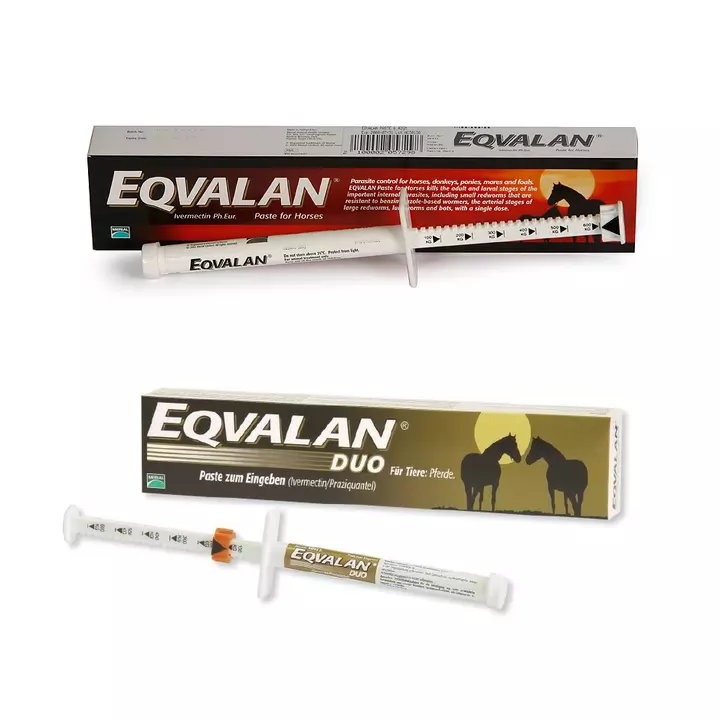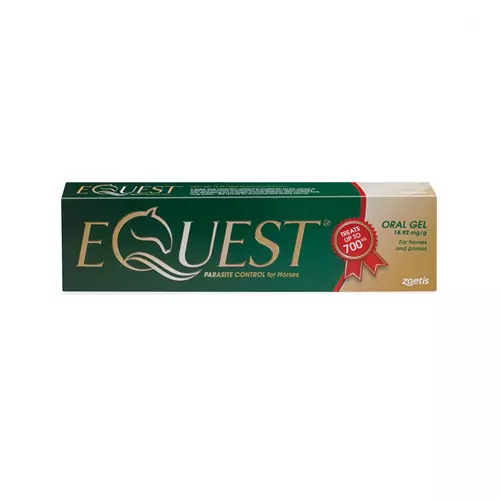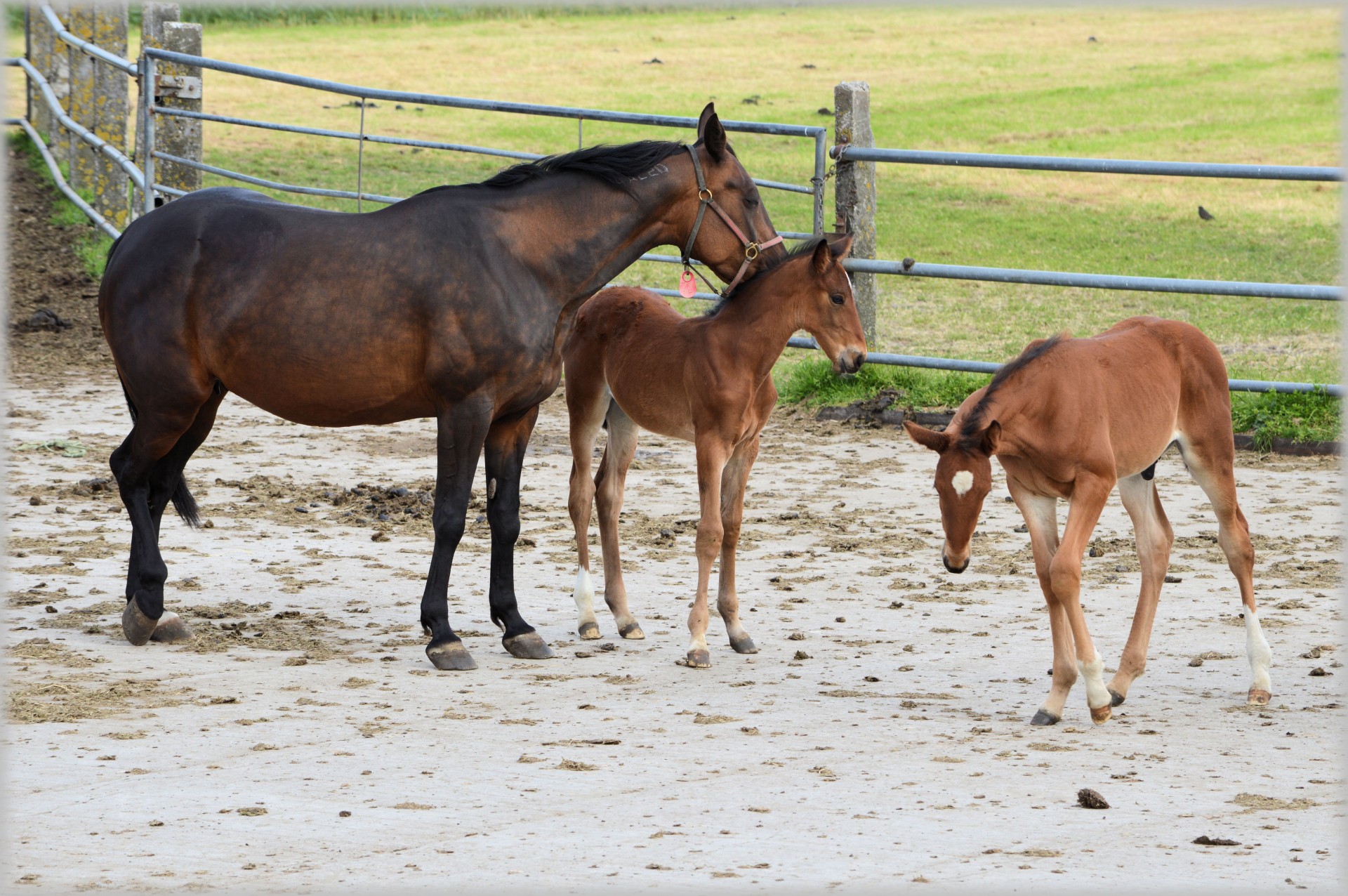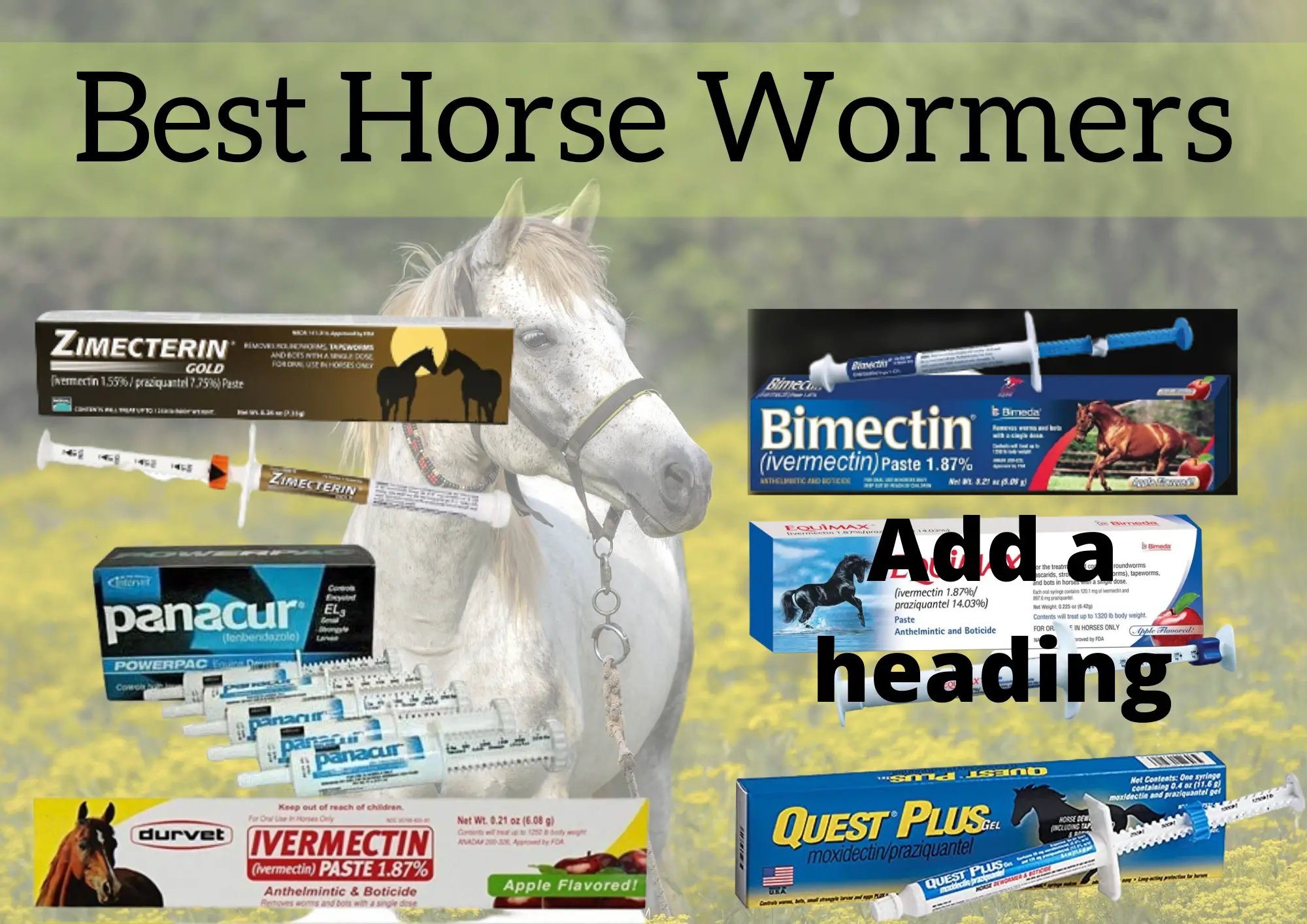Last Updated on October 19, 2022 by Allison Price
Controlling internal parasites is the primary concern of horse doctors. But due to constant deworming, parasite resistance has become a problem. Thus, vets work with clients in developing deworming strategies. Only horses showing signs of heavy parasite load must be then treated.
Most adult horses develop parasite immunity. Some horses with a high level of immunity do not shed many worm eggs. Thus, deworming horses on the same schedule makes little sense. Horses less than three years old are more susceptible to different parasite infection. They have a greater risk of developing parasite related diseases.
Deworming every couple of months or rotating dewormers do not control parasites. It is a waste of time and money. It also builds parasite resistance.
While the goal is to get rid of all horse parasites, it’s impossible. We should then encourage limiting parasite infection to keep our horses healthy. So here, we will discuss effective ways to limit horse parasites. Also, we will present eight effective wormers one horse owner can use.
Parasite Infection Symptoms

The symptoms of parasite infection vary. It depends on the type of worm involved and how many worms the horse is being infected. Many parasite infections will have no symptoms when the parasite burden is low. But a high number of worms can cause symptoms and affect the horse’s health. Common signs of parasite infection in both younger and older horses include:
- Lethargy
- Loss of weight
- Loss of condition
- Diarrhea
- Colic
- Lack of appetite
- Dull coat
To confirm if a horse has worms is to have your vet perform a fecal egg count and blood test. These tests confirm the species of parasite. It provides an idea of how many adult worms are in the intestine. It also gives an estimate of how your pasture is being infested. The blood test measures chemicals in the blood. These are then produced by inflammatory responses to the migration of the larvae.
Eight Best Horse Wormers
There are different wormers available in the market to treat horse wormers. The following are the top eight horse wormer in the equine community.
Quest Plus Gel Horse Wormer

This is a known product that covers the largest range of worms. It also suppresses strongyle egg production through 84 days. Quest Plus Gel is a combination of moxidectin and praziquantel. It is for the treatment of strongyles, encysted cyathostomes, ascarids, pinworms. It’s also effective against hairworms, large mouth stomach worms, stomach bots, and tapeworms. Quest Plus Gel Wormer has been then formulated for use in horses and ponies only. Reproductive studies on breeding stallions have been then conducted. Extreme adverse reactions may result if this product is then used in other animals.
Quest Plus Gel Horse Wormer is always recommended by vets. It is the ingredient that targets tapeworms and is effective.
Note:
It may be only used in horses and ponies six months of age and older. It has been then approved for use in breeding mares and stallions.
Product Details:
- Broad-spectrum, effective and safe
- Syringe calibrated in 50 lb. increments
- Treats up to 1,500 lb. body weight
- Brand: Zoetis
- Form: Gel
- Active Ingredient: Moxidectin, Praziquantel
Pros
- One dose suppresses strongyle egg production through 84 days
- For oral use in horses and ponies with six months of age and older
- Approved for use in breeding mares and stallions

Cons
- The container cap is hard to twist open.
- It causes allergic reactions if used to other species of animals.
Panacur Powerpac Paste Horse Wormer

This offers a complete treatment for an adult horse through oral administration. It has a unique apple-cinnamon flavor that is palatable for your picky-eater horse. This wormer is even safe for a 5-day regiment needs. It is for those horses with severe worm issues or those that are sensitive. You will see the coat results in a few short days after treatment.
Panacur Powerpac Paste Horse Wormer is regular and important maintenance for horses. It is easy to administer. It is also effective and will not cause diarrhea on your horses.
Note:
It is safe for foals and pregnant mares, and other horse breeds. It is also safe for the environment and for use around other farm animals and pets.
Product Details:
- Size: 57g syringes (5 per carton)
- Ingredients: 10% (100mg/g) fenbendazole paste
- FDA-approved treatment for all stages of strongyles
Pros
- Safe for all ages and breeds of horses
- Recognized as the product of choice for treating ascarids in young horses

Cons
- It may cost more than the other products.
Eqvalan Duo Horse Wormer

This product is then recommended by most veterinarians. It contains ivermectin and praziquantel. It treats roundworms and tapeworms in a single treatment. Eqvalan is for control of tapeworms, strongyles, hairworms, pinworms, roundworms (ascarids). It also treats threadworms, stomach worms, bots, lungworms, and cutaneous onchocerciasis in equids. Each tube treats up to 600kg.
Note:
Eqvalan is safe for use in pregnant/lactating mares and young foals
Product Details:
- Single Dose Dewormer
- Treats large & small strongyles
- Treats Pinworms
- Can treat up to 1250 lb of horse body weight
- Use in Horses Only
Pros
- Eqvalan is safe for use in pregnant/lactating mares and young foals.

Cons
- A toxic product for the environment, so it should be then disposed of properly after use
Animec Ivermectin Horse Wormer

Animec Horse Wormer is an oral paste wormer. It has an active ingredient for horses called ivermectin. Animec treats many of internal parasites. This includes small and large redworms, lungworms, pinworms, and bots in horses. Treats and Controls: Gastro-intestinal worms, lungworms, nasal bots.
Animec Horse Wormer is an apple flavor that horses love. It removes worms and bots with a single dose. It is safe to use on all horses. That includes broodmares breeding stallions and young foals.
Note:
Always read the label and all enclosed information before administering to animals!
Product Details:
- Each syringe contains 7.49g paste
- It contains 18.7mg/g ivermectin and can treat horses of up to 700kg.
Pros
- Recommend by vets
- Easy to use

Cons
- Animec Horse Wormer does not treat tapeworm or encysted small redworms.
Zimecterin Gold Paste Horse Wormer

Zimecterin Gold Paste Horse Wormer is safe for most horses. That includes breeding stallions and foals over five months of age. It has a potent, broad-spectrum antiparasitic agent and approved by the FDA. It is to control 47 species and stages of equine parasites. That includes tapeworms and the arterial stages of S. Vulgaris, in a single dose. It is a combination of ivermectin and praziquantel. Together, they provide excellent equine parasite control.
Note:
THIS PRODUCT IS NOT INTENDED FOR HUMAN CONSUMPTION.
Product Details:
- Removes tapeworms, roundworms, and bots with a single dose
- Contents can treat up to 1250 lb of horse body weight
- For Oral Use in Horses Only
- Easy single-dose usage
- Each syringe treats up to 1,250 lb
Pros
- Very well known and respected brand.
- Safe for horses over 5 months old

Cons
- Not approved for pregnant or lactating mares
Equest Horse Wormer Gel

Quest Gel Horse DE wormer is clear gel wormer for horses. Use in horses and ponies six months of age and older. The improved syringe allows for accurate dosing. The gel melts in the mouth of the horses, to avoid waste. Quest Gel is then used to aid in the control of hairworms. It is also advisable for stomach worms bots, encysted small strongyles. It treats up to 1500 lb horse.
Product Details:
- 2% Moxidectin, clear gel wormer for horses
- Use in horses and ponies six months of age and older
- Each tube treats up to 1150 pound equine
Pros
- The gel melts in the horse’s mouth to prevent waste

Cons
- Not recommended for young horses.
Bimectin Ivermectin Horse Wormer

Bimectin Paste is an apple-flavored horse wormer. It has a calibrated syringe for accurate dosage. It’s an excellent option for the treatment of arthropod infestations in horses. It is also good for horses who are sensitive to ivermectin. This anthelmintic controls large and small strongyles, pinworms, and ascarids. It also includes hairworms, large-mouth stomach worms, lungworms, intestinal threadworms, and bots. The product is safe to use in horses of all ages. It offers broad-spectrum activity against a wide range of debilitating and performance-depriving parasites.
Bimectin Ivermectin Horse Wormer is then loved by most horses due to its apple flavor. It is easy to administer and comes in a great price.
Note:
Ivermectin residues may affect aquatic organisms. Thus proper disposal of the product is then advised to avoid environmental contamination.
Product Details:
- Great apple flavor that horses love
- It has an easy-to-dose syringe. It delivers the exact amount of Ivermectin for horses
- Each syringe treats up to a 1,250 lb. of horse body weight
- Syringes are usually marked in 250 lb. increments
Pros
- Proven safe for pregnant mares, foals, and breeding stallions

Cons
- Toxic to the environment
Equimax Paste Horse Wormer

Equimax is an all-in-one dewormer approved by the FDA. It combines ivermectin and praziquantel in a single dose. This is to get rid of all major internal parasites, including tapeworms. It is safe for all horses. That includes foals, pregnant and lactating mares, and breeding stallions.
Equimax Paste Horse Wormer has no colic. Most horses liked the taste and this wormer covers many types of parasites.
Note:
Paste should not be then used in other animal species. This is because of severe adverse reactions, including fatalities in dogs. It is also not intended for human use. Residues of Ivermectin and Ivermectin affect aquatic species. Proper disposal is then advised to avoid contamination of the ecosystem.
Product Details:
- Ivermectin/praziquantel dewormer
- Removes worms and bots with a single dose
- Contents will treat up to 1320 lb of horse body weight.
- Rid most of all major internal parasites, including tapeworms
Pros
- Cheap

Cons
- To be only used in horses.
- High toxic level for the environment
Worming Schedule for Horses
Veterinarians usually suggest worming the horse every two months. But, there is a lively debate about the effectiveness of repeated use of the same wormers. It is wise to have a serious discussion with your vet about the best possible schedule for your horse. Here are some factors to consider when determining which dewormer to use:
- Your horse’s age
- Fecal egg count reduction test performed by your vet.
- Even if your horse is then stabled, it is still susceptible to worms.
- Only use the drugs that kill the worms which are then detected in the fecal egg count reduction test. Overexposing worms to dewormers can cause them to become resistant after awhile.
- Try to use the weather and climate to your benefit. Different climates can affect parasite reproduction. This is in turn reduces the frequency of deworming.
- Be sure to follow dosage directions. If your horse is not consuming the suggested dosage, they’re being underdosed. This is in which less effective on the parasites
- Consult a veterinarian if you have any concerns horse worming plans.
Guidelines for Foals

The foals will undergo at least four deworming treatments during the first year. The first should be then carried out at two or three months of age, and a second three months later. Check for eggs at weaning to see what parasites are in the foal. 3rd and 4th treatments should be always considered at around the age of 9-12 months. It is also to target the worms that were then found. Tapeworm treatment should be also included.
Perform fecal tests yearly to determine how well the dewormers are working. Don’t deworm an 8-day-old foal. The diarrhea isn’t caused by worms. Put recently weaned foals on the cleanest pastures. Yearlings and 2-year-olds should be always treated as high shedders. They will undergo three to four annual drug therapies. This is being demonstrated via a fecal test.
How to Control Worms
There are generally three steps for effective parasite control. Always refer to a vet for the most effective program for your particular horse.
Managing the Pastures
Decrease the number of ineffective eggs and larvae from the pasture. Remove and dispose of feces in the pasture. Do this at least twice a week. It will still be effective in reducing the population of eggs and larvae. Mowing and harrowing the pasture exposes the larvae to predators. This helps decrease the population.
Pasture Rotation
If possible, rest the pasture for at least six months. Reduce the number of horses per hectare to the least count. Supply hay or feeds in a rack rather than feeding them on the ground. Track fecal egg counts. This helps to diagnose the parasites. It is also to determine the effectiveness of your worming program.
Worming your Horse
Giving a horse a dewormer helps eradicate adult worms from the intestine. This is to decrease the re-infection by reducing the number of larvae in the feces and in the pasture.


